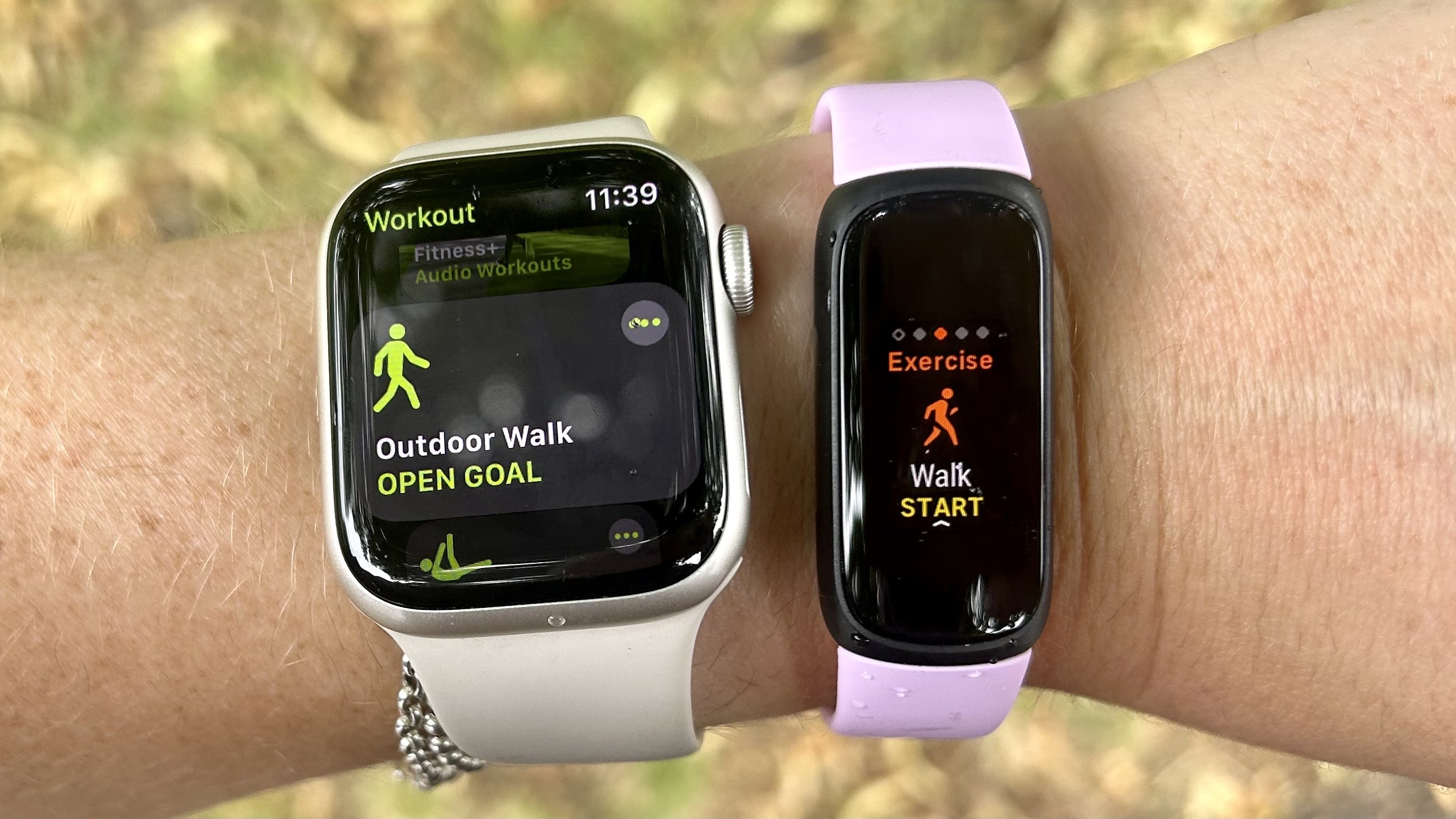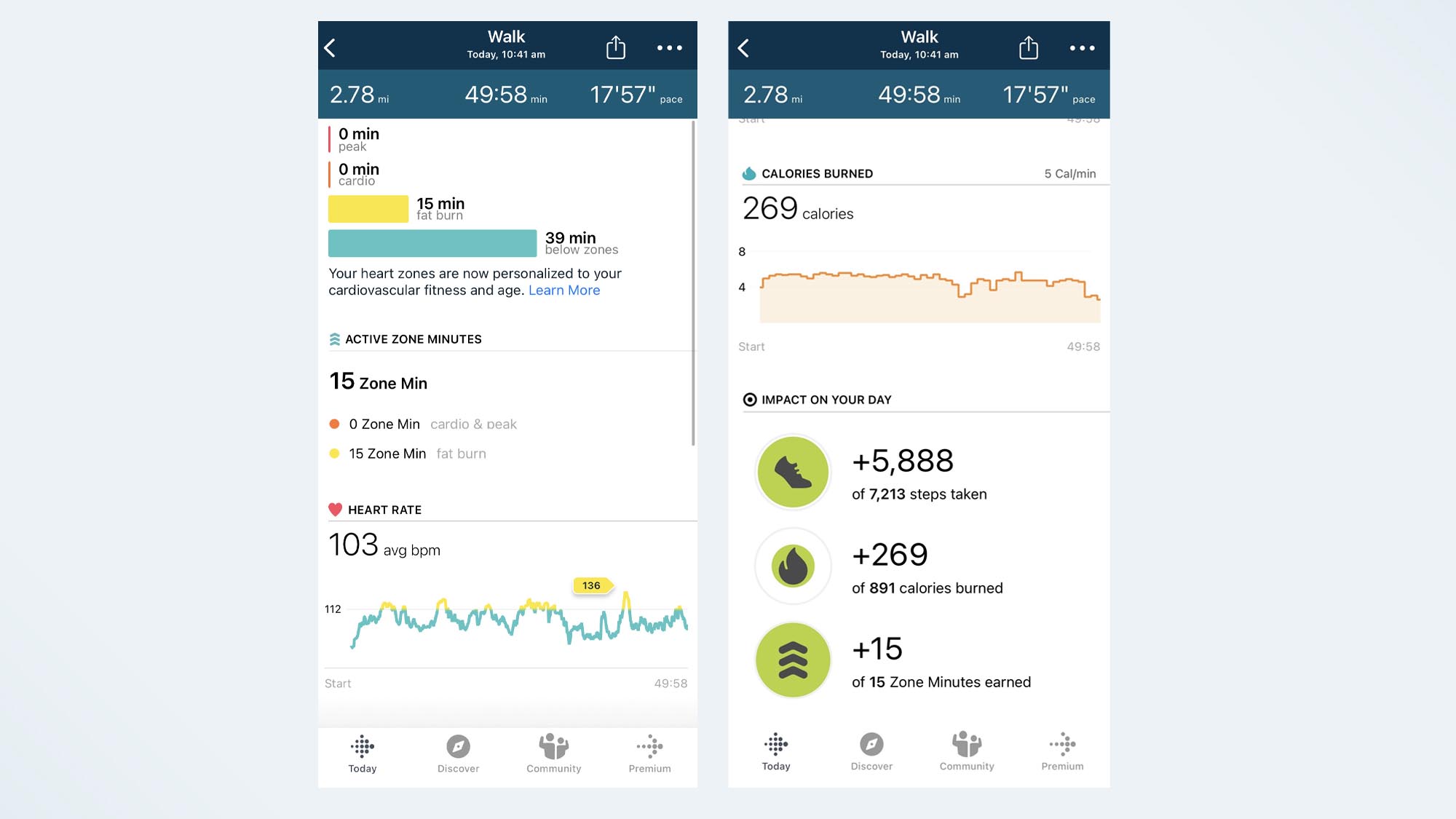
Ever wondered whether the Apple Watch or Fitbit is more accurate when it comes to counting your steps? After comparing the Apple Watch to Garmin in a similar way last week, I decided to dig out my trusty step counter app (don’t worry readers, I’m ordering a manual clicker from Amazon as I type), and put the Apple Watch Series 8 and the Fitbit Inspire 3 to the test. Once again, I manually counted 6,000 steps, while also tracking my steps on the Apple Watch and the Fitbit, to see which would be more accurate.
Both the Apple Watch Series 8 and the Fitbit Inspire 3 count your steps in a similar way — using an internal accelerometer, which measures the swing of your arm. Each swing counts for two steps. It doesn’t matter whether you wear your watch on your dominant or non-dominant hand, or whether you’re walking with your hands in your pockets, or holding something, the accelerometer should still measure your body’s movement.
I walked 6000 steps with the Apple Watch and Fitbit Inspire 3 — here’s which was more accurate
For this test, I set out on a walk that was around three miles long, in the pouring rain, while counting my steps using the Tally Counter app on my iPhone. I wore both watches on my left wrist while holding my phone in the right, manually clicking every time I took a step. I paused briefly halfway through the walk to pick up some groceries. My Apple Watch Series 8 recorded the walk as 2.73 miles, whereas the Fitbit recorded 2.78 miles — pretty close, although it’s worth noting the Fitbit Inspire 3 does not have built-in GPS, so the Apple Watch GPS data is likely to be more accurate.
I learnt from my previous experiment with the Apple Watch and the Garmin that Apple make it difficult to see your exact step count from an activity. Sure, you can see your daily total in Fitness app, and you can find hourly step data in the Health app, but to make things a little less confusing, I downloaded the StepsApp Pedometer app on my Apple Watch.
Here’s the difference between the two watches:
The results:
- Manual recording: 6,000 steps
- Apple Watch Series 8: 5,796 steps
- Fitbit Inspire 3: 5,888 steps
As you can see, the readings from the two trackers are pretty similar, with a difference of 96 steps between them. Neither quite reached the same accuracy as the Garmin Forerunner 265, which accurately recorded my walk last week to a difference of 26 steps. The Fitbit was ever so slightly more accurate than the Apple Watch Series 8, but there’s not all that much in it this time.

It’s worth noting that no fitness tracker will be 100% accurate at counting every single step — I’m five foot two, and have quite a short stride. When I’m running, I often find I have a high cadence because of this. What’s more, fitness trackers do a lot more than just tracking your steps, and counting steps alone isn’t the best metric when it comes to getting fitter and losing weight. That said, it’s a good place to start.
While that the target of 10,000 steps began as a piece of marketing in 1965 by a Japanese company that was about to introduce a device called a Manpo-kei (it means 10,000-steps meter), it is a useful goal — a review of 32 studies, published in the International Journal of Behavioral Nutrition and Physical Activity found that “10,000 steps/day is a reasonable target for healthy adults.”

If we’re comparing the two devices, the Apple Watch undoubtedly has a lot more features than the Fitbit Inspire 3, which is a much more basic fitness tracker. There’s also a huge price difference — the Apple Watch Series 8 costs $399/£399, whereas the Fitbit Inspire 3 costs $99/£84.99. If you are deciding between the two, check out our Apple Watch Series 8 review and our Fitbit Inspire 3 review here, as well as our roundup of the best fitness trackers.
However you choose to track your steps, there are a number of benefits of walking more, including losing weight, building muscle, and feeling less stressed. Here’s what 30-minutes of walking each day can do for your body.







